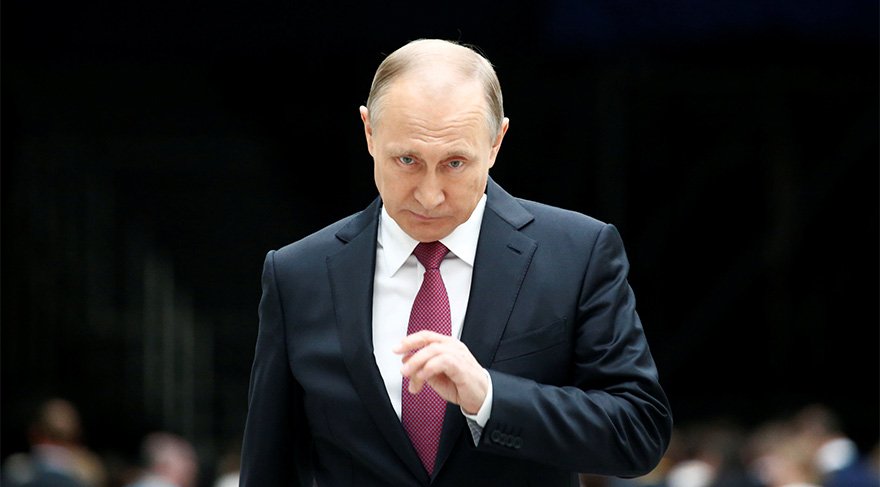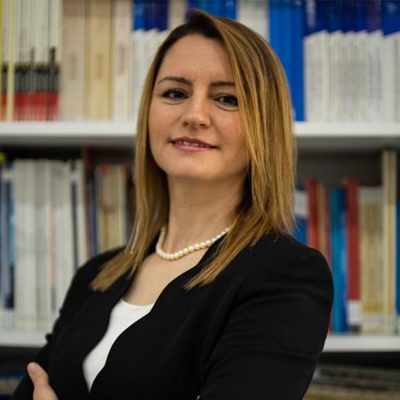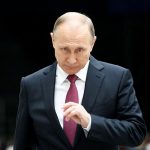The concept of realism which dominates Turkish foreign policy needs to be referred before attempting to understand bilateral relations between Russia and Turkey. Realism in terms of international relations; argues that the international system is anarchic by nature, that “power” and “security” are dominant factors, and that the state is in its own interest. It is again the basis of the realist theory that states must survive and be sovereign and independent for the continuation of their international political-economic relations. With this point of view, the security dilemma is the point where states are most affected in the context of international relations. When we examine the ‘power’ and ‘security’ concerns of a state on a realistic basis, the importance of the alliances system is remarkable (Keyik & Erol, 2019, s.19).
If recent history is viewed, due to the question of power and security concerns, Turkey, since her establishment, have tried to minimize the security dilemma in the Middle East and the Balkans along with the Balkan Pact and Sadabad Pact (Çiçek, 2020).
After World War II, Turkey was faced with the bipolar world process known as “Cold War”. Turkey, as a bridge between the east and the west, confronted with Soviet pressure from north and Europe and USA pressure from west due to her geographical location and experienced a security dilemma. At this point, Turkey chose up her side in the clamp of the western block -Europe and USA- and the eastern block -Soviet Union- by carrying out a pro-Western policy and being a member of NATO (Yanık, 2012). In addition, the collapse of the Soviet Union in the 90s and the end of the Cold War did not cause transformation in Turkey’s realist foreign policy.
Turkey, as a result of idealist foreign policy which have been put into practice in the 2010s, established an inclusive multilaretal alliances system by means of western –EU and USA- and eurasian -Russian Federation as the heir of Soviet Union- and tried to maximize her interests. Precisely at this point, after the manner of the west towards coup attempt of Fethullah Terrorist Organization (FETO) which shows the idealist foreign policy actually has an end, Turkey turned back to realist foreign policy from idealist foreign policy. Because Turkey, especially in the post-coup threat, did not find the support she expected from the West (BBC, 2016). It is clearly seen that the US pursued a policy “against” Turkey when we analyze the request of Turkey for extradition of FETO ringleader remained inconclusive by the US and also the ringleader still keeps on living in the US. Subsequently, the crises such as Halkbank case towards Turkey, Priest Brunson crisis, undelivered F-35 warplanes, dismissing of Turkey from F-35 Warplane Project, sanction decisions for Turkish Bureaucrats and statements of US president Donald Trump about direct economic sanctions prompt Turkey to change allies (Toroğlu, 2019). Getting closer to Russia as the first country after the coup attempt who stated that they are with Turkey, it can be said that Turkey shows herself in Eurasian block rather than USA’s hard, isolating and a security dilemma building manners (Akyol, 2017). When we look at the recent foreign policy, the opening of the Turkish Stream natural gas pipeline in and the introduction of national currencies in bilateral trade deepened the economic relations with Russia. In the next period, Turkey’s undelivered order of Patriot defence system from the US in line with the Syrian crisis and the her current needs of regional security, gives its place to adding Russian S-400 to Turkish Armed Forces inventory and this caused reactions of both NATO and the US. Over the past year, especially after taking place of Turkey as an active force in Syria and so confrontation with Russia who is backing Assad regime, can be characterized as a signal of political disputes between the two countries. Also, as a result of the call made by the National Consensus Government accepted by the United Nations as a legitimate government in Libya, Turkish troops went to Libya and met with Wagner, a private military company belonging to Russia, to raise the political dispute (BBC, 2020).
All these developments gave the first signs of Turkey’s idea to re-establish an alliance with the West / allied, in response to the recurring security dilemma. In view of confrontation of Russia backed regime forces and Turkish military forces and Idlib crisis, this political crisis has deepened and thus West/NATO started to suport Turkey. The support given to Turkey has shown itself with the description of “We are Turkey’s ally” message of NATO on its website and “We stand by Turkey” message published by the US Embassy in Ankara. Accordingly, with the new security dilemma Turkey faced, we can say that Turkey took side with the United States and NATO as a realist (Aliyev, 2020;İHA, 2020).
At this stage, some says that Turkey cut loose from NATO after evaluating Turkey’s foreign policy and security policy since 2016. Notwithstanding, attributing the realist view, we should not forget that “states don’t have permanent friends or enemies” notion.
BIBLIOGRAPHY
ÇİÇEK, M. (2020, Şubat 15). Sadabat Paktı Ve Balkan Antantı’nın Taraf Ülkelerin Stratejisine Ve Güvenliğine Katkısı Ve Türkiye’nin Rolü. Şubat 20, 2020 tarihinde Uluslararası Politika Akademisi: http://politikaakademisi.org/2020/02/15/sadabat-pakti-ve-balkan-antantina-taraf-ulkelerin-stratejisine-ve-guvenligine-katkisi-ve-turkiyenin-rolu/ adresinden alındı
AKYOL, T. (2017, Kasım 22). ‘Milli ve yerli’ Avrasyacılık! Şubat 20, 2020 tarihinde Hürriyet: https://www.hurriyet.com.tr/yazarlar/taha-akyol/milli-ve-yerli-avrasyacilik-40653608 adresinden alındı
ALİYEV, J. (2020, Şubat 20). Turkish female jet pilot speaks in video clip on common values shared with NATO allies. Şubat 20, 2020 tarihinde Anadolu Ajansı: https://www.aa.com.tr/en/turkey/nato-shares-video-clip-in-support-of-turkey/1740216 adresinden alındı
BBC. (2016). Economist: Türkiye’de darbe girişimi sonrası ‘Batı karşıtlığı. Şubat 20, 2020 tarihinde BBC: https://www.bbc.com/turkce/haberler-turkiye-37127568 adresinden alındı
BBC. (2020, Ocak 7). Wagner Grubu: Libya’daki Rus paralı askerler hakkında neler biliniyor? Şubat 20, 2020 tarihinde BBC: https://www.bbc.com/turkce/haberler-dunya-51008162 adresinden alındı
İHA. (2020, Şubat 12). ABD Büyükelçiliği’nden İdlib paylaşımı: ‘NATO müttefikimiz Türkiye’nin yanındayız’. Şubat 20, 2020 tarihinde İhlas Hava Ajansı: https://www.iha.com.tr/video-abd-buyukelciliginden-idlib-paylasimi-nato-muttefikimiz-turkiyenin-yanindayiz-135020/ adresinden alındı
KEYİK, M., & EROL, M. S. (2019). REALİZME GÖRE GÜÇ VE GÜÇ DENGESİ KAVRAMLARI. Uluslararası Kriz ve Siyaset Araştırmaları Dergisi May, 3(1), 12-49.
TOROĞLU, M. (2019, Aralık 28). 2019: Türkiye-ABD İlişkilerinin Zor Yılı. Şubat 20, 2020 tarihinde amerikaninsesi: https://www.amerikaninsesi.com/a/t%C3%BCrk-amerikan-i%CC%87li%C5%9Fkilerinin-zor-y%C4%B1l%C4%B1/5223439.html adresinden alındı
YANIK, L. K. (2012). Atlantik Paktı’ndan NATO’ya: Türkiye Büyük Millet Meclisi’nde Türkiye’nin Konumu ve Uluslararası Rolü Tartışmalarından Bir Kesit. Uluslararası İlişkiler, 29-50.






